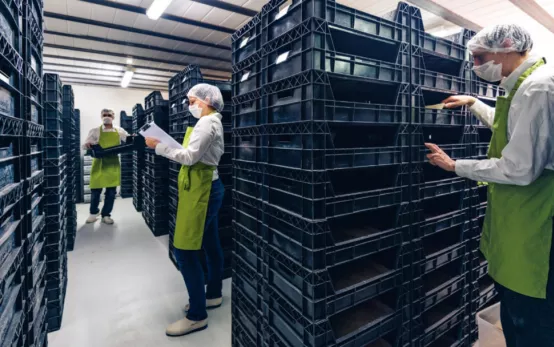The future of food: Will we all be eating insects and algae soon?
I originally published the following article May 11th, 2016, on Rude Baguette, France’s startup blog.

The world’s food system might be at risk, experts claim in alarming reports that with a world population expected to reach at least 9 billion people by 2050, the world may not be able to feed itself if it doesn’t increase food productivity. However, countries need to prioritize sustainable methods of production, since current systems have a considerable impact on the environment, with the emission of greenhouse gases and the wasting of huge amounts of water. It’s time to think about new ways to consume food and startups are the front-runners in this race.
Sooner this year, the city of Paris has launched an innovation platform, Smart Food Paris, with the aim to become the heart of the food tech community in Paris. An incubator program created by Paris’ innovation agency Paris&Co, Groupe Elior, Carrefour, Groupe Up, and Danone.
Ever wonder what people will be eating in the future? Take a look at those two startups from Toulouse and Evry, creating innovative products and sustainable methods of production to feed ourselves.
Micronutris
Based in Toulouse and founded in 2011, Micronutris is known as the first French farm to raise edible mealworms and crickets, a particularly good alternative source of protein. The concept of eating insects, or entomophagy, is already used in some Asian and South-American countries such as Thailand or Brazil. Moreover, Micronutris doesn’t just produce insects, they also craft fine products with them, such as pasta or chocolate, which they sell on their website. They’re also the first operational European farm in this segment, and the first one in the world with ISO 22000 certification, thanks to their expertise.
“It’s not only about eating insects as they are but incorporating them in ordinary food products […] Those aliments are rich in protein and poor in fat. Moreover, their production has a low impact on the environment, emitting a hundred times less greenhouse gas than beef production.” — Cédric Auriol, Founder & CEO of Micronutris
Along with line-caught fish and free-range eggs, insects are way less resource-demanding than beef, indeed, they need 7 times less food, and 50 times less water, resulting in the emission of 100 times fewer greenhouse gases.
Algama
The first company that is providing healthy, tasty and sustainable food made from microalgae is based in Evry and has been founded in 2013 by three young entrepreneurs. Algama’s product and vision might be one of the solutions to answer the menacing and upcoming food problems that we’ll face in the future.
Microalgaes are rich in nutrients, easy and sustainable to grow. Algama also like to remind us that a century ago 80% of our diet was plant-based, nowadays 80% of our diet is animal-based.
Their first product, Spring Wave, is a drink made of spirulina with therapeutic virtues. They also developed, along with professionals from the gastronomy industry, a Mayonnaise made without eggs.
Agriculture, which used to represent 18 percent of France’s wealth 50 years ago, contributes to only 1.5 percent nowadays, but still, half of the territory is dedicated to agriculture and animal farming.
FAO (Food and Agriculture Organization of the United Nations) and the European Union have decided to invest in research and promotion of entomophagy and alternative food as a possible answer to the coming problems of food supply and production.
These two French startups have made a very clever bet, creating innovative, sustainable, and tasty products. But do people really want to try eating algaes and insects ? A lot of people might be repelled about that, one of the biggest challenges for these entrepreneurs is the need to educate consumers, but France could be a good market to launch and scale these products, we already eat snails and sea-urchins after all.
Hi! I am a robot. I just upvoted you! I found similar content that readers might be interested in:
http://www.rudebaguette.com/2016/05/11/the-future-of-food-will-we-all-be-eating-insects-and-algae-soon/
Thanks robot ! :)